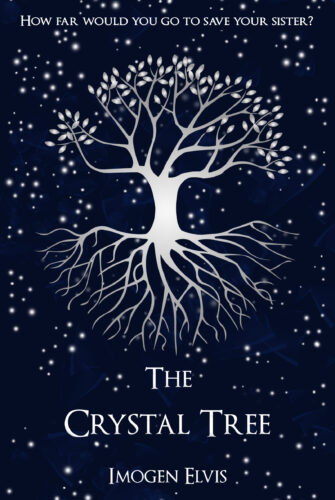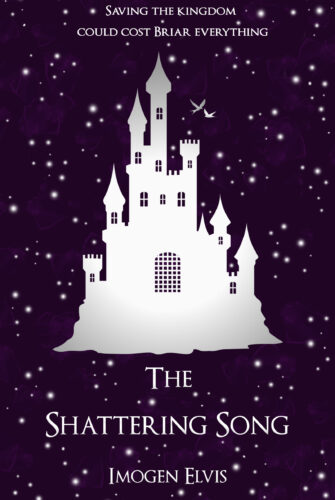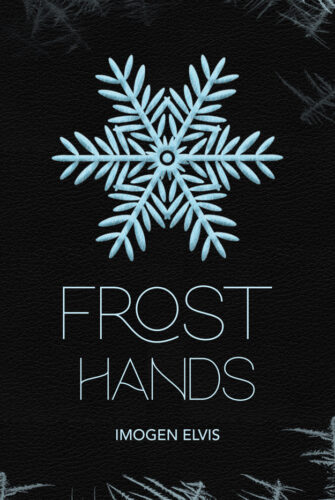I feel like I’m being such a good little bookworm at the moment. I’ve been listening to audiobooks and actually enjoying them, I’m alternative modern and classic reads, and I even wrote out a list pf all the books on my TBR list (which needs updating already, because that’s the book life for you). Along with all of this, the other major thing I’m doing at the moment is trying to incorporate more non-fiction into my diet. In general, I’m the sort of person who would live entirely off fiction my whole life if I could. But that does a great disservice to non-fiction books. They’re amazing in their own way, giving me interesting ideas to mull over, new strategies to try out, and fresh new motivation to work harder. They’re much slower to read than fiction, partly because I take notes while I read them, but I am most of the way through my second non-fiction book for the year, and I’m feeling rather good about myself at the moment. So I thought that today I would share five non-fiction books that are currently on my TBR.

Digital Minimalism
Cal Newport
Cut down on screen time and get your technology use in check
The urge to pick up our phones every few minutes has become a nervous twitch that shatters our time into shards too small to be present. Our addiction to tech leaves us feeling exhausted and overwhelmed. But it doesn’t have to be that way.
As someone who has a phone, and a computer, and spends 90% of my waking hours at home looking at these devices, sometimes both at the same time, I feel like maybe this book will have some interesting insights into how to make technology work for me, rather allowing them to dominate my life. I don’t believe technology is evil, but I certainly believe that I have some bad habits when it comes to my devices, and I’d love to see what Cal Newport suggests. I’m in the middle of one of his other books, Deep Work, which has some very interesting insights into focus, distractions, technology, and how to do your best work, and I’m really intrigued to see what I get out of Digital Minimalism as well.

Die Empty
Todd Henry
Most of us fill our days with frantic activity, bouncing from task to task, scrambling to make deadlines and chase the next promotion. But by the end of each day we’re often left wondering if any of it really mattered. We feel the ticking of the clock, but we’re unsure of the path forward.
I used to listen to Todd Henry’s podcast The Accidental Creative a lot, back before I accidentally forgot to listen to any podcasts at all (oops), and enjoyed his conversations about the creative life very much indeed. I highly recommend the podcast. Todd Henry has a lot to say about life as a creative, doing your best work, and tapping into your true potential. Die Empty is all about unleashing our best work every single day, sharing our talents and amazing ideas with the world so that we can die empty, without having held anything back. I’m always very interested in how to do better work, so I’m really interested to see what I can pick up out of this book to shake up my own life and help me do my best work every day.

Atomic Habits
James Clear
People think when you want to change your life, you need to think big. But world-renowned habits expert James Clear has discovered another way. He knows that real change comes from the compound effect of hundreds of small decisions – doing two push-ups a day, waking up five minutes early, or holding a single short phone call.
He calls them atomic habits.
As someone who has always struggled to pick up new habits, or even to keep up with the ones I have sometimes, I’m actually quite excited to read this book and see what suggestions James Clear has to offer. I’ve heard him interviewed on a couple of podcasts, including The Accidental Creative, and I’ve read some of his posts on his website, and all of these just make me that much more interested in his book. I’ve been waiting for my mum to finish reading this book (and for me to finish my current non-fiction read, which is taking longer than her reading Atomic Habits somehow. Unfair) so I can crack this one open and hopefully learn how to successfully make new habits, and maybe break a few old ones along the way.

On Writing
Stephen King
Part memoir, part master class by one of the bestselling authors of all time, this superb volume is a revealing and practical view of the writer’s craft, comprising the basic tools of the trade every writer must have.
King’s advice is grounded in the vivid memories from childhood through his emergence as a writer, from his struggling early career to his widely reported, near-fatal accident in 1999 – and how the inextricable link between writing and living spurred his recovery.
Stephen King’s On Writing is one of the most recommended books on writing ever, and I’m almost ashamed that, for the amount of times I’ve been told I should read this book, that I haven’t actually done so yet. Am I actually a fake writer? I do own a copy of it on my Kindle, and I even started reading it once, but I haven’t finished it yet. Which is a shame because it’s actually a very engaging memoir, as well as a practical book. I’m not a huge fan of memoir as a rule. It was one of my least favourite subjects of all in university, sadly. But this book is genuinely so good and engaging that I’m really looking forward to starting it again and actually finishing it this time around.

Finish
Jon Acuff
If you’re tired of being a chronic starter and want to become a consistent finisher, you have two options: You can continue to beat yourself up and try harder, since this time that will work. Or you can give yourself the gift of done.
This one will actually be a reread for me. I first read Finish a couple of years ago, back before I ever published The Crystal Tree. It gave me the kick in the pants I needed to finish writing my own book, and the tools I needed to hit my publishing deadline and get my debut novel out into the world. Finish is a book with an amazing sense of humour. I genuinely enjoyed reading it for its own sake. But it is also filled with incredibly practical advice for achieving goals, hitting deadlines, and getting the projects that really matter to you finished. It’s been quite a while since I read this book, obviously, so I feel like it’s time for a refresher. I’m a person with a lot of goals and deadlines, and I’m always eager to know how to do things better. Maybe it’ll be the motivator I need to press on harder with my next couple of books, who knows?
These are the top five books on my TBR at the moment. But I would love to hear from you. Which non-fiction books are on your TBR? Have you read any of these books? Do you have any recommendations for other non-fiction books I should try? Do you enjoy reading non-fiction?











I’m currently listening to On Writing and it’s really just as good as everyone says!! Adding the others that I haven’t read to my TBR!
I’m so excited to hear that On Writing is as good as they say! I only read the very beginning before, but now I’m itching to get into the rest of it. I hope you enjoy these other books. They’ve been highly recommended to me, and I love the other things the authors have produced, so I”m really hopeful that they’re going to be great!
Three suggestions of non-fiction for you is Six Days by Ken Ham. Your First Million Words by Jeff Wheeler. The Shallows by Nicholas G. Carr